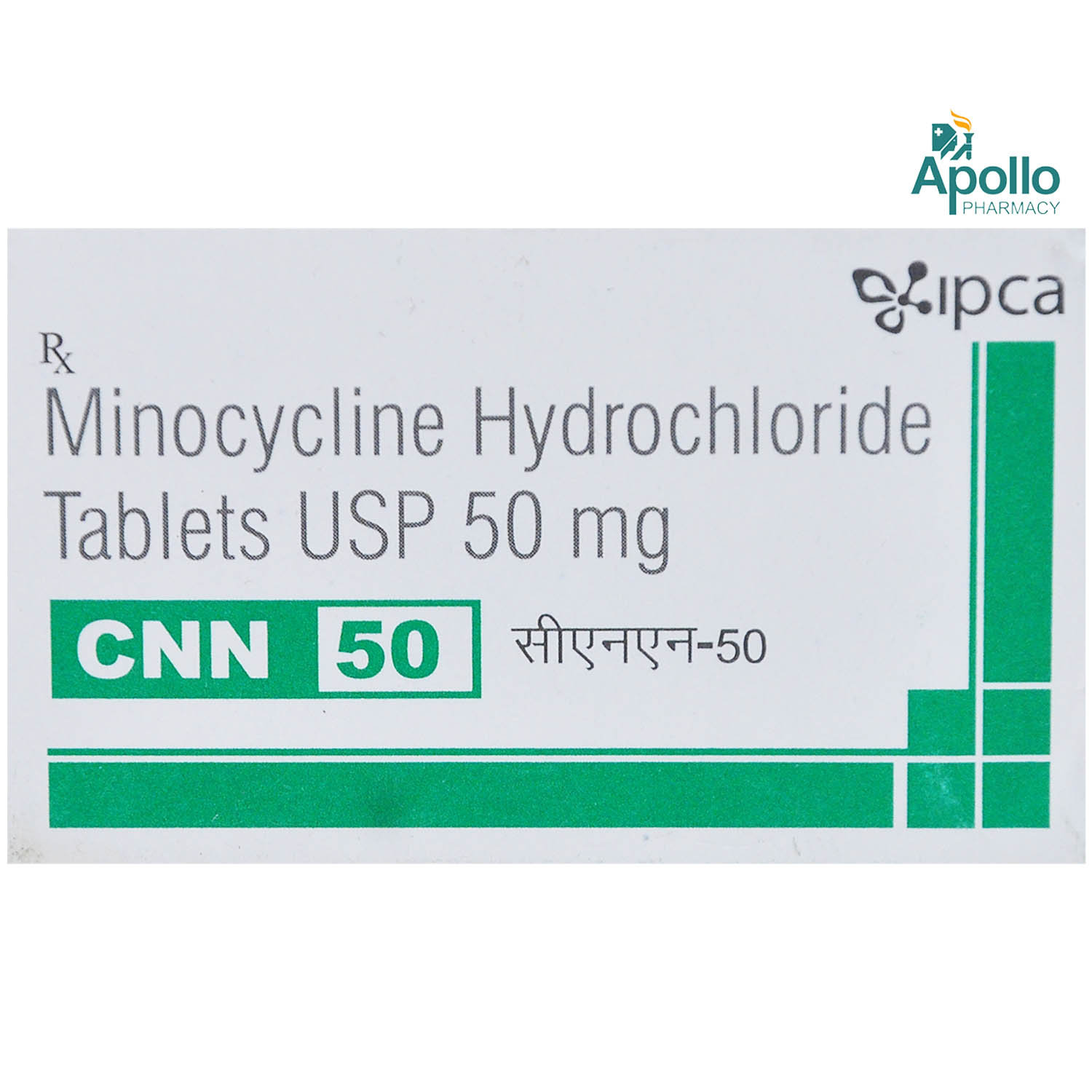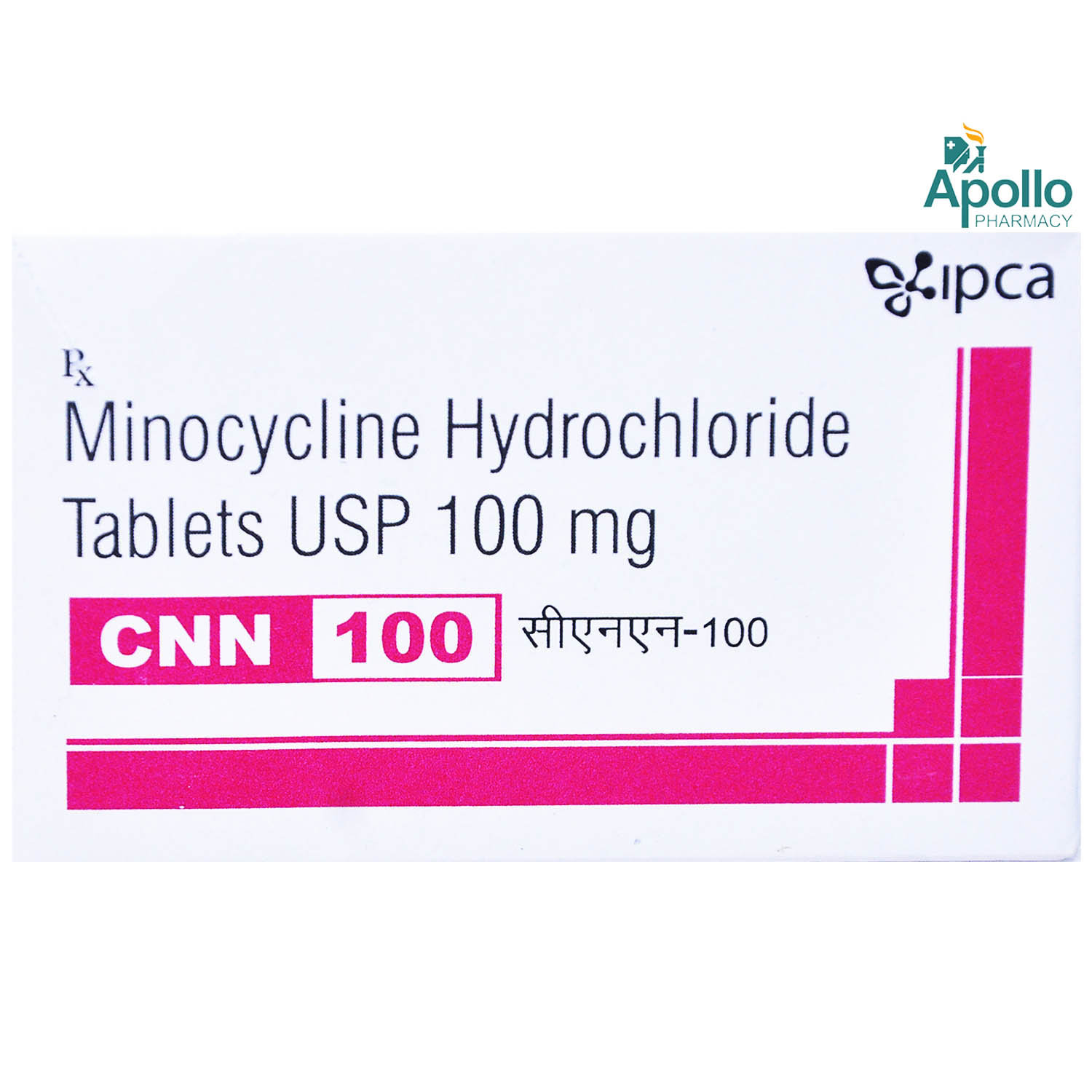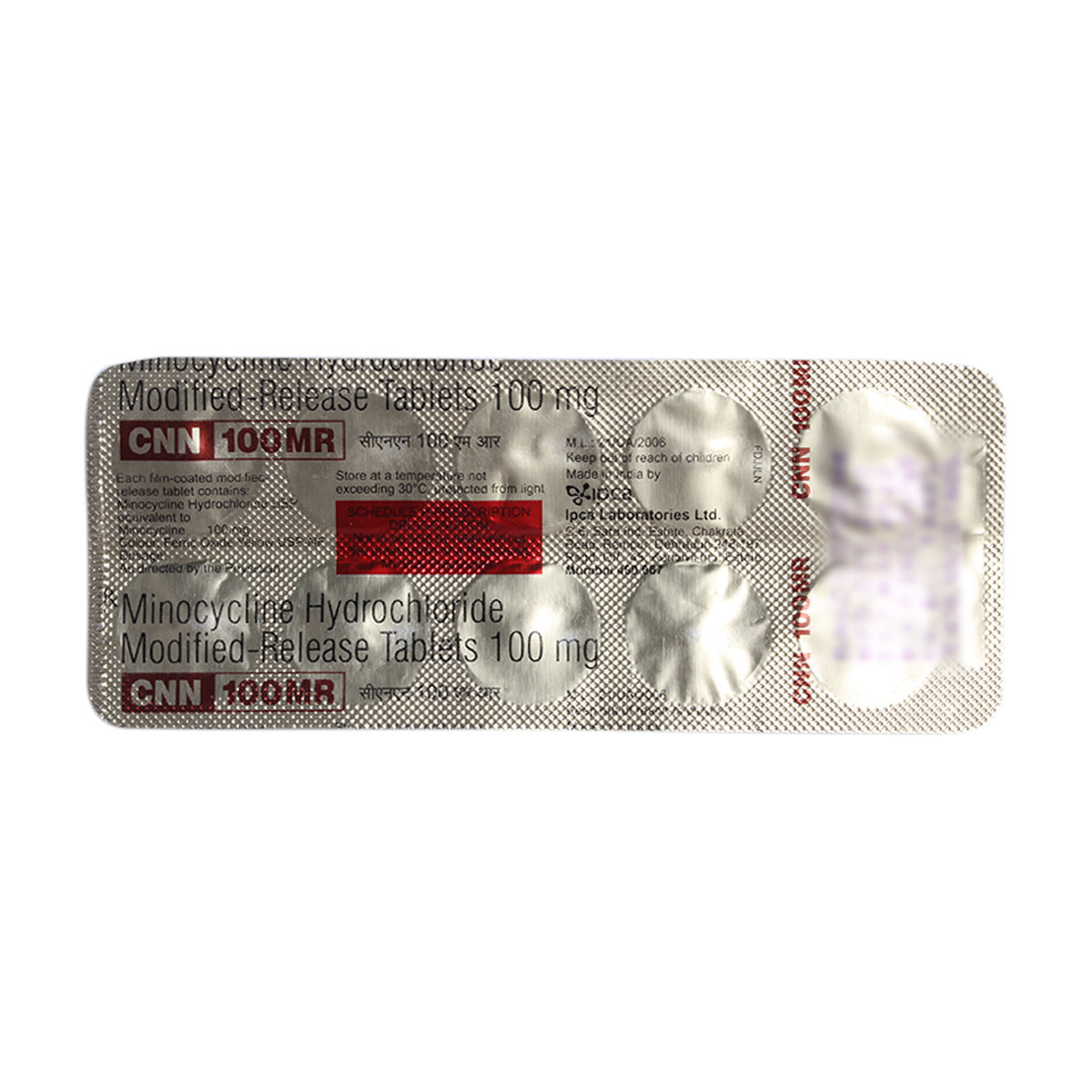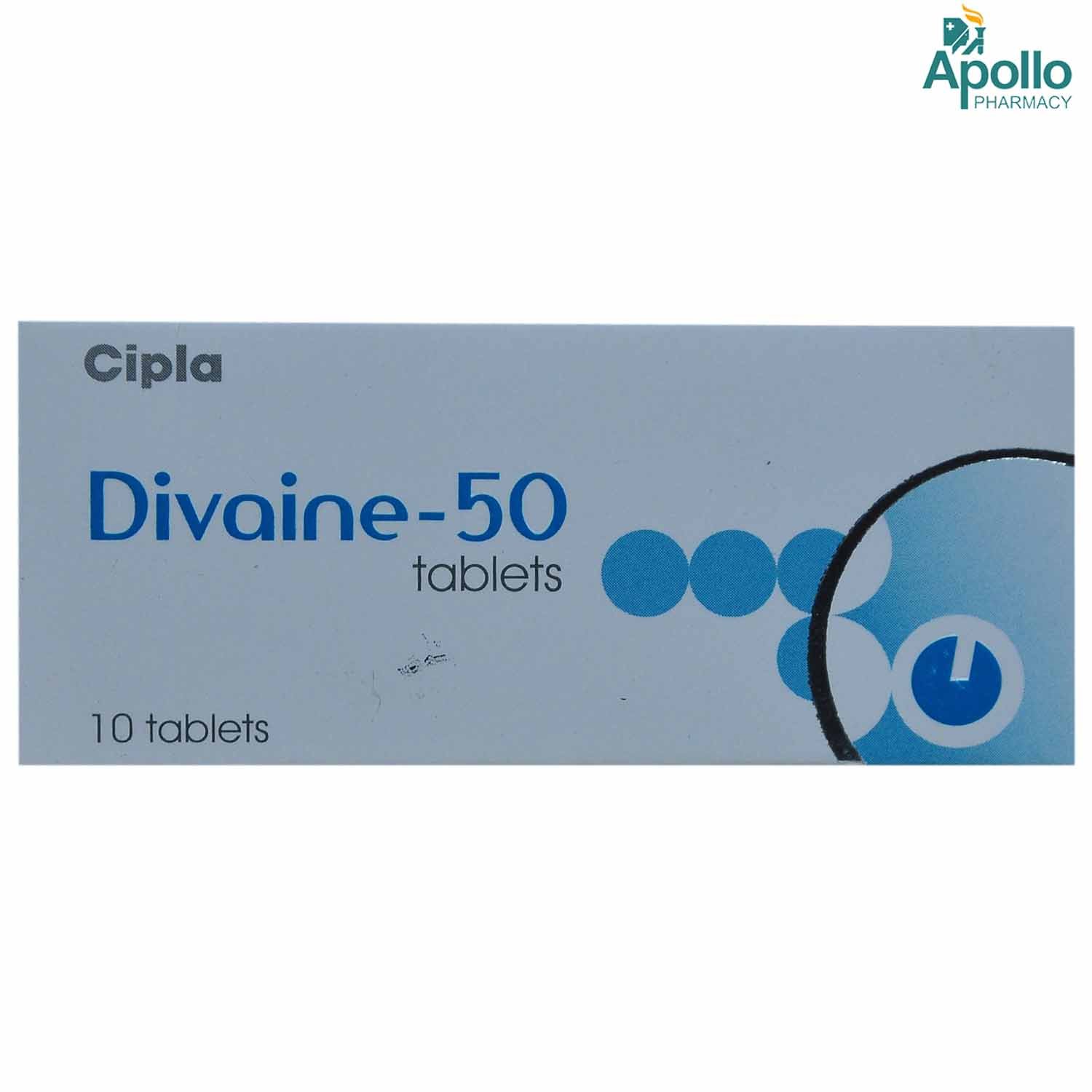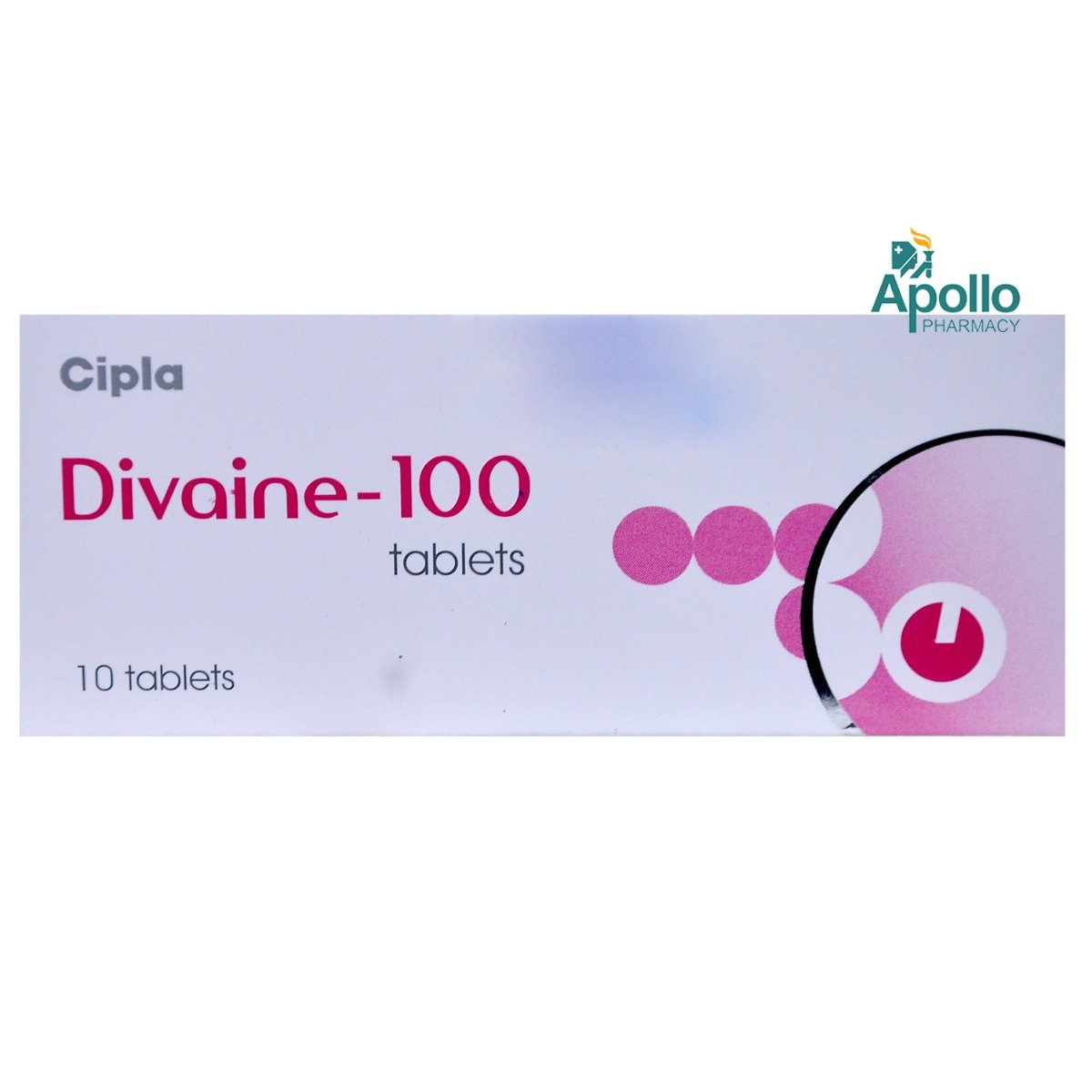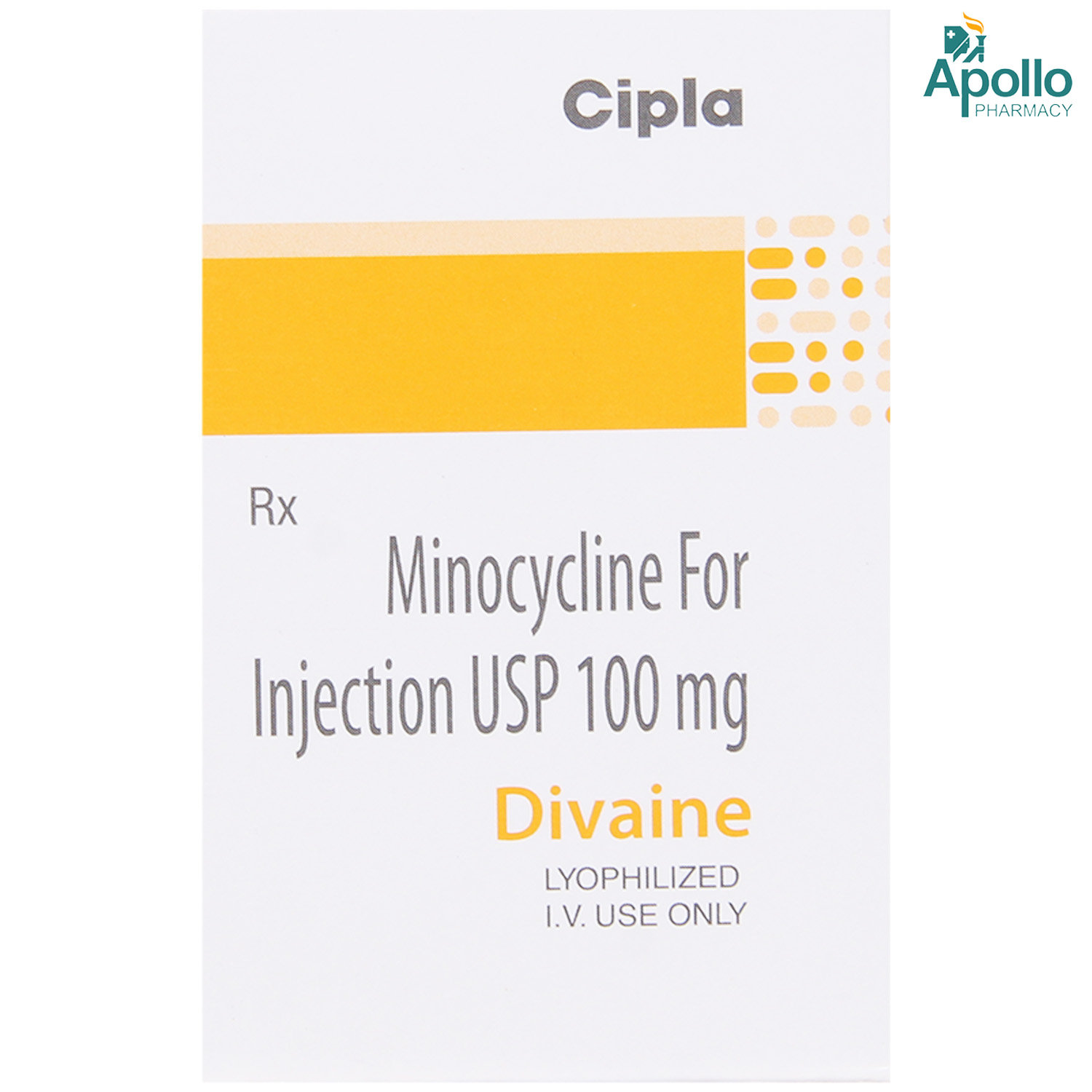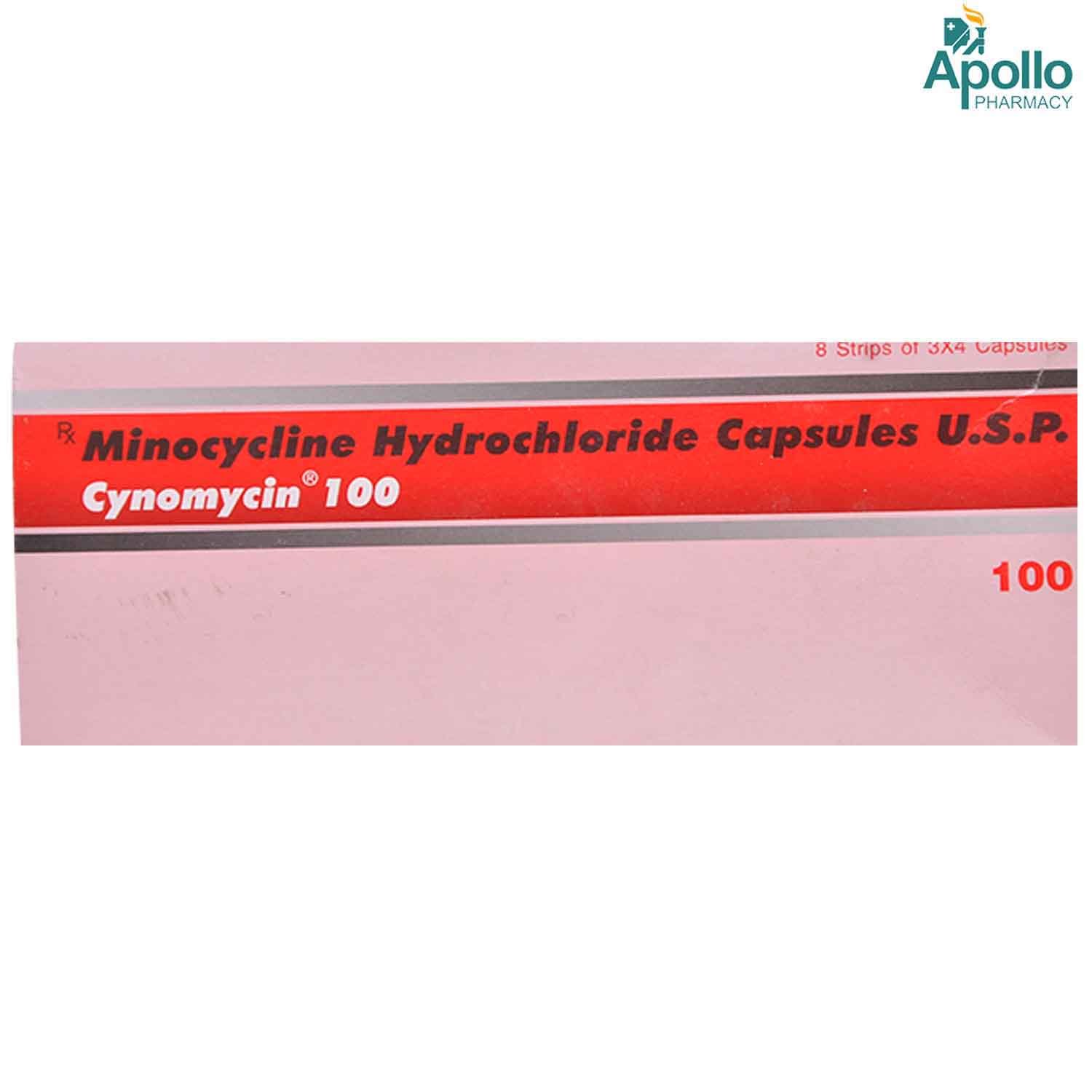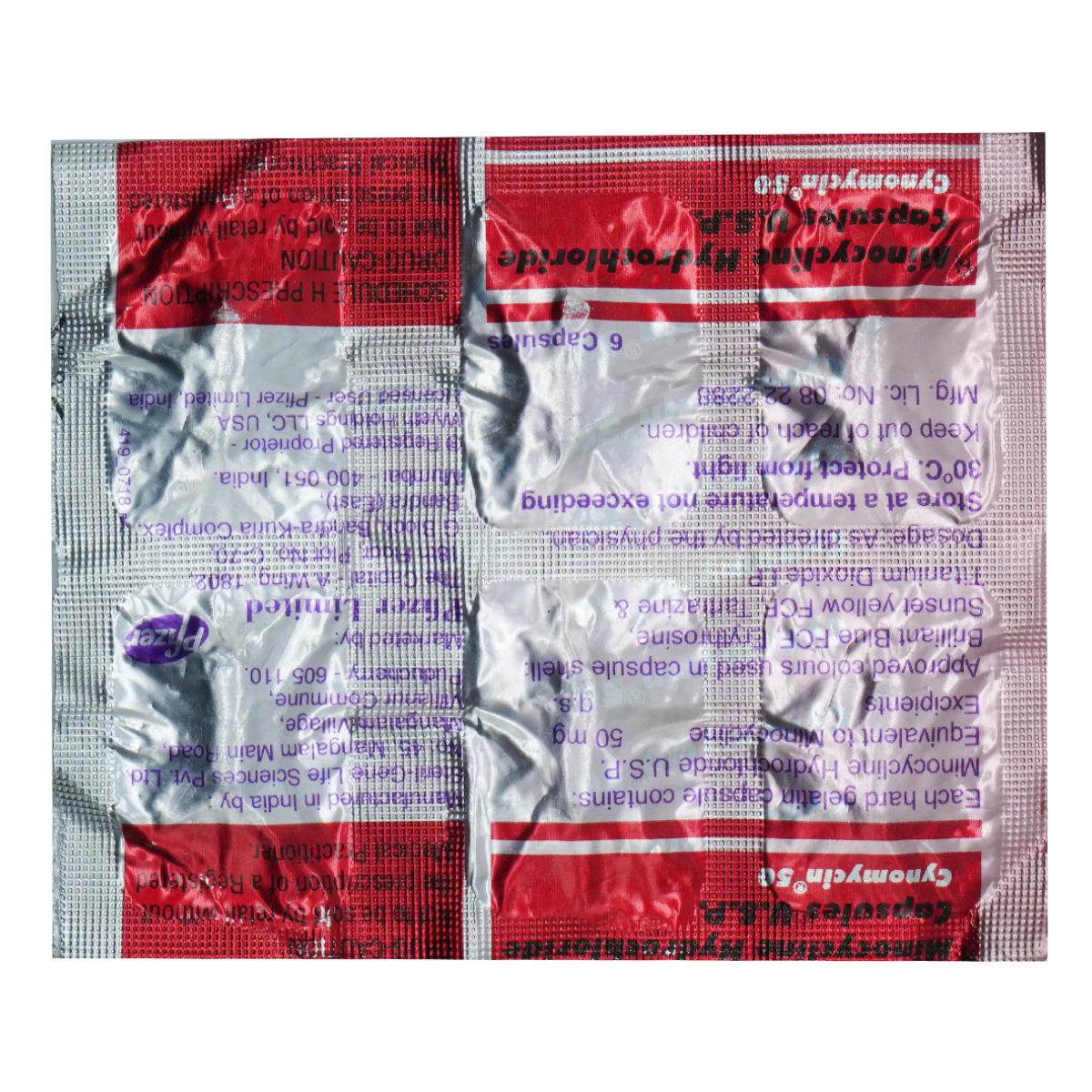Minocycline
About Minocycline
Minocycline belongs to a group of medications called tetracycline antibiotics, used to treat a wide range of bacterial infections. Minocycline treats urinary tract infections, intestinal infections, respiratory infections, sexually transmitted infections (like gonorrhea, syphilis), skin infections, and others. Besides this, Minocycline also treats acne-like lesions caused by rosacea. The bacterial infection is a condition in which bacteria grows in the body and cause infection. It can target any body part and multiple very quickly. Antibiotics inhibit the growth of microorganisms given to treat such kind of infections.
Minocycline contains Minocycline (antibiotic) primarily used to treat a wide range of bacterial infections comprising gram-negative, gram-positive, anaerobic, and other bacteria. It is a derivative of the tetracycline class of antibiotics that inhibits the protein synthesis process required for the growth of the bacterial cell. As a result, bacterial cells are not able to reproduce and grow. It is a bacteriostatic antibiotic i.e. it stops the growth of bacteria but necessarily does not kill them.
Take Minocycline as prescribed by your doctor. You are advised to take Minocycline for as long as your doctor has prescribed it for you, depending on your medical conditions. You may experience headache, photosensitivity (extreme sensitivity to ultraviolet (UV) rays from the sun and other light sources), dizziness, vomiting, itching, nausea, dizziness, and diarrhoea. Most of these side effects of Minocycline do not require medical attention and gradually resolve over time. However, if the side effects are persistent, reach out to your doctor.
Before using Minocycline tell your doctor if you ever had an allergy to Minocycline have kidney problems, liver problems, asthma. Use of Minocycline in pregnant and nursing mothers is not recommended. It may affect bone and tooth development in unborn babies. Use of Minocycline during tooth development (pregnancy, infancy, and childhood to the age of 8 years) may cause permanent staining of teeth (yellow-grey-brown). So, its use should be avoided by pregnant women, breastfeeding mothers, and children below 8 years of age. Do not consume alcohol as it may cause excessive drowsiness when taken along with Minocycline. Do not drink alcohol with Minocycline as it may increase the unpleasant side effects.
Uses of Minocycline
Medicinal Benefits
Minocycline is a type of tetracycline class of antibiotic which is effective against a wide range of bacteria including gram-negative, gram-positive bacteria, anaerobes, and some parasites (like Balantidium coli and Entamoeba species). It is prescribed for the treatment of various bacterial infections of the respiratory tract, urinary tract infections, intestinal infections, sexually transmitted infections (like gonorrhea, syphilis), skin infections, and others. Besides this, it is also indicated in the tick-borne infections (typhus fever) caused by the Rickettsia group of bacteria like typhus fever. Off label, usage includes the treatment of acne.
Directions for Use
Storage
Side Effects of Minocycline
- Headache
- Photosensitivity (extreme sensitivity to ultraviolet (UV) rays from the sun and other light sources)
- Dizziness
- Vomiting
- Itching
- Nausea
- Diarrhea
Drug Warnings
Iron and antacid (like magnesium hydroxide and aluminum hydroxide) may bind to Minocycline in the gastrointestinal tract, lowering its efficiency. So, a gap of at least 2 hours should be maintained between intake of Minocycline and iron supplements and antacids. Prolonged use of Minocycline during tooth development (pregnancy, infancy, and childhood to the age of 8 years) may cause permanent discoloration of the teeth (yellow-grey-brown). Do not consume alcohol as it may cause excessive drowsiness when taken along with Minocycline. Before using Minocycline tell your doctor if you ever had an allergy to Minocycline have kidney problems, liver problems, asthma. Using efficient birth control to prevent pregnancy while you are using this Minocycline, whether you are a man or a woman. Do not drink alcohol with Minocycline as it may increase the unpleasant side effects. Besides this, in some cases, the use of Minocycline causes antibiotic-associated diarrhea. Minocycline may cause sensitive skin to sunlight and ultraviolet rays causing exaggerated sunburn reaction. Hence it is advisable to apply sunscreen before going outside.
Drug Interactions
Drug-Drug Interaction: Minocycline may interact with medicines used for infections (phenoxymethylpenicillin), medicines for acne (isotretinoin), medicines for heart disease (quinapril), medicines for migraine (ergotamine), medicines for inducing labor pain (ergometrine), diuretics/ water tablets (furosemide), medicines for diarrhea (kaolin), antacids (like aluminum, calcium, or magnesium, bismuth subsalicylate), iron supplements.
Drug-Food Interaction: Food containing calcium, iron should be avoided as it may affect Minocycline effectiveness. Also, prevent the intake of grapefruit or grapefruit juice with Minocycline. Avoid alcohol intake as it may lead to dizziness and effect Minocycline absorption.
Drug-Disease Interaction: Minocycline should not be given in people with colitis (inflammation in the gastrointestinal tract), liver, and kidney disease.
Drug-Drug Interactions Checker List:
Safety Advice

Alcohol
unsafeMinocycline should not be taken until prescribed if you are taking alcohol. Keep your doctor informed if you drink alcohol.

Pregnancy
unsafeMinocycline is a Pregnancy Category D. There are no adequate and well-controlled studies on the use of Minocycline in pregnant women. In some cases, taking Minocycline during pregnancy may affect tooth and bone development in the unborn baby. So, if you are pregnant or planning for pregnancy contact the doctor before using a Minocycline.

Breast Feeding
unsafeMinocycline can pass into breast milk and may affect bone and tooth development in a nursing infant. The extent of absorption is unknown. Do not breastfeed while you are taking this medicine.

Driving
cautionDrive with caution, Minocycline usually causes blurry vision, dizziness and may affect driving ability.

Liver
cautionMinocycline to be taken with caution, especially if you have a history of liver diseases/conditions. The dose may have to be adjusted by your doctor.

Kidney
cautionMinocycline to be taken with caution, especially if you have a history of kidney diseases/conditions. The dose may have to be adjusted by your doctor.

Children
unsafeChildren should not use this medicine. Minocycline can cause permanent yellowing or graying of the teeth in children younger than 8 years old.
Habit Forming
Diet & Lifestyle Advise
- Include more fiber enriched food in your diet, as it can be easily digested by your gut bacteria, which helps stimulate their growth. Thus, fiber foods may help restore healthy gut bacteria after a course of antibiotics. Whole grains like whole-grain bread, brown rice should be included in your diet.
- Eating grapefruit during antibiotics treatment can prevent the body from utilizing Minocycline properly. So, prevent intake of grapefruit or grapefruit juice with the antibiotic.
- Avoid taking too much calcium, iron-enriched foods, and drinks as it might affect the working of Minocycline.
- Avoid intake of alcoholic beverages with Minocycline as it can make you dehydrated and affect your sleep. This can make harder for your body to aid the Minocycline in fighting off infections.
- Probiotics should be taken after taking full course of Minocycline in order to restore some of the healthy bacteria in the intestines that may have been killed. Taking probiotics after antibiotic treatment can reduce the risk of antibiotic associated diarrhoea. Certain fermented foods like yogurt, cheese, sauerkraut, kombucha, and kimchi can help to restore the good bacteria of the intestine.
Special Advise
Patients Concern
Disease/Condition Glossary
A bacterial infection is a condition in which harmful bacteria enter, multiply, and infect our body. It can target any body part and multiple very quickly. When you get infected with bacteria, you can experience generalized symptoms, like fevers, chills, and fatigue. Bacteria are of various forms comprising commonly of spherical, rod, and spiral-shaped. Bacterial infections vary from minor illnesses like sore throat and ear infections to severe brain infections like meningitis and encephalitis. Few harmful bacteria that cause infections include Streptococcus, Staphylococcus, and E. coli. Anyone can become infected with a bacterial infection. But, people with weak immune systems or taking immunosuppressive medicine can make you more prone to bacterial infection.
FAQs
Minocycline can make birth control pills less effective. Please ask your doctor about using non-hormonal birth control (condom, diaphragm with spermicide) to prevent pregnancy.
No, Minocycline should not be stopped even if you feel better as it is an antibiotic medication and completing the full course if very necessary, otherwise the infection might re-appear in a more severe form.
The expiration date of any drug is the last day the manufacturer takes guarantee of the full potency of the drug. Discuss with your doctor, Minocycline can be taken 15-20 days after the expiry date given the shape, color, and state of the tablet has not changed. If you find any slight change in the form of medicine please do not consume it.
You should avoid taking iron supplements, multivitamins, calcium supplements, antacids, or laxatives within 2 hours before or after taking Minocycline. Avoid taking any other antibiotics containing Minocycline unless your doctor has prescribed you.
Use of Minocycline during tooth development (pregnancy, infancy, and childhood to the age of 8 years) may cause permanent staining of teeth (yellow-grey-brown). So, it is not recommended for pregnant women, breastfeeding mothers, and children below 8 years of age.

